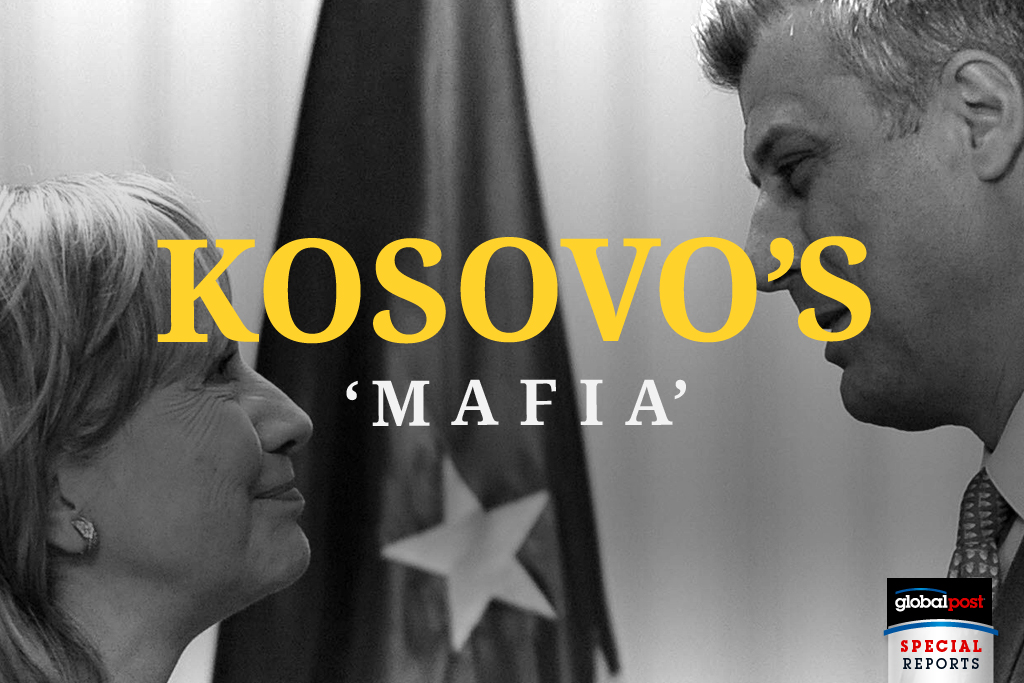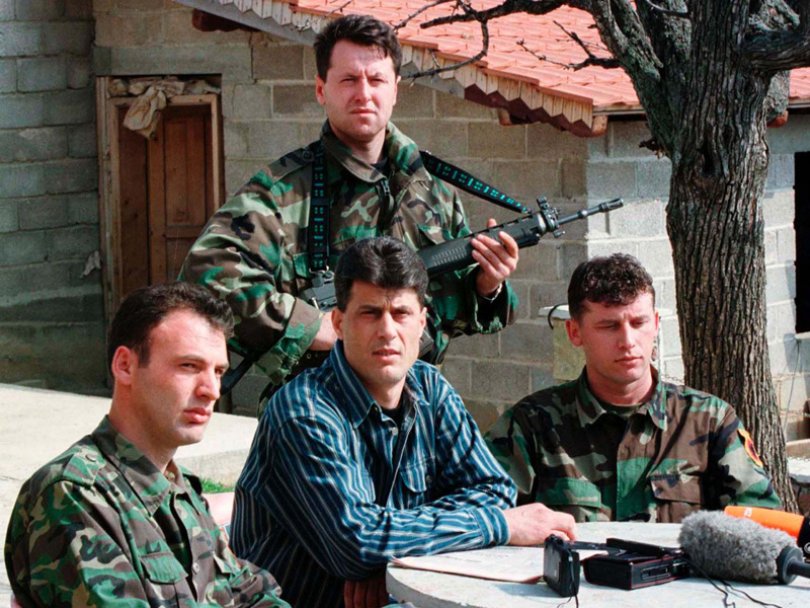
Views: 1903
In this Talking Point Dr Marcus Papadopoulos says that ordinary people in the West were not told that after Serbia lost control of Kosovo, following the Nato bombing campaign against Belgrade and other Serbian cities in 1999, the region became a centre-point in Europe for the trafficking of people, drugs and organs. When Kosovo unilaterally declared its independence from Serbia in 2008, Western politicians hailed the event.
The United States, which engineered the disputed act of independence, led the way in recognising the new Balkan state, with its allies quickly following suit.
Many of the leading figures in today’s Kosovan government are from the former Kosovo Liberation Army, which was backed by Nato during its bombing campaign against Serbia.
The KLA (or UCK as it is known in Albanian) was once categorised by the US government as a terrorist organisation. As the American special envoy to Bosnia Robert Gelbard said prior to the Kosovo war: “We condemn very strongly terrorist actions in Kosovo. The UCK is without any question a terrorist group.”
Citing ‘humanitarianism’, the US, together with its allies, argued that as Serb forces were ‘slaughtering’ thousands of Kosovan Albanians, Nato had a moral duty to intervene to stop the ‘ethnic cleansing’. Western officials, together with Western journalists, cited the figure of 100,000 Kosovan Albanians murdered by the Serbs.
And so, Nato intervened and bombed civilian and military installations across Serbia.
Following the successful Nato campaign to drive Serb forces out of Kosovo and deliver the region to its proxy, the KLA, Spanish forensic experts, acting on behalf of the International Criminal Tribunal for the former Yugoslavia, exhumed 2,788 bodies in Kosovo, believed to be both Albanians and Serbs, who had died of various causes, including through combat.
Fabrications with current parallels
As in the case of Iraq and Libya, the West fabricated a story in Kosovo in order to achieve geo-strategic objectives.
And the parallel between how the West portrayed the fighting in Kosovo and how it is currently portraying the fighting in Syria should not be lost on anyone.
Today, Kosovo is an independent state (recognised by 105 countries) and has been “brought into the family of Europe”, as EU officials state.
However, by having torn Kosovo away from Serbia, and by having teamed up with the KLA, the West played an instrumental role in allowing Kosovo to be at the forefront in human, drug and organ trafficking in Europe today.
UK sex trade
According to a British Home Office report from a few years ago, 70 percent of the sex trade in London alone is run by Kosovan Albanians.
And British narcotics police have referred to Kosovo as the ‘Republic of Heroin”’.
Concerning the latter, it is reported that drugs from Afghanistan make their way through Turkey where they end up in the former KLA stronghold of the Drenica valley in Kosovo, from where they are smuggled to Western Europe.
Commenting on Kosovo’s status within the drug world, the head of the crime section of Serbia’s border police, Milenko Vukadinović,referred to Kosovo as the ‘biggest black hole’ for drug smuggling.
Further to that, this May, police in Kosovo arrested Naser Kelmendi, a Kosovan Albanian drug lord who is suspected of masterminding organised crime in the Balkans.
Organ trafficking
Coupled together with drug and human trafficking is the disturbing revelation that Kosovo is involved in organ trafficking.
Today, there are reports that impoverished people from Eastern Europe have been trafficked into Kosovo where they are paid a small amount of money for one of their organs.
However, the first case of organ trafficking in Kosovo actually occurred during the fighting between Serb forces and the KLA from 1998-1999.
According to the former chief prosecutor at the International Criminal Tribunal for the former Yugoslavia, Carla Del Ponte, evidence suggests that Serbs were systematically abducted by the KLA and transported to camps in northern Albania where they were killed for their organs.
Organised crime
What makes the issue of organised crime in Kosovo all the more potent is that senior Kosovan Albanian politicians have been implicated in it.
The main party in the ruling coalition in Kosovo today is the Democratic Party of Kosovo, which was the political wing of the KLA and is headed by Kosovan Prime Minister Hashim Thaci.
According to Michael Levine, a former official of the US Drug Enforcement Administration, the KLA was “linked with every known narco-cartel in the Middle East and the Far East.” And The Observer newspaper in Britain reported that: “The PDK [Democratic Party of Kosovo] took control of many municipalities after the war [in Kosovo]. The party has close links with organised crime in the province.”
 Prime Minister Hashim Thaci, whose nickname as a KLA commander was “The Snake”, and who is embraced by Western leaders, founded the infamous Drenica Group in the early 1990s, which continues to be one of the most powerful criminal organisations in the Balkans dealing in drug and human trafficking. A report by the Council of Europe corroborated Thaci’s links to the Drenica Group.
Prime Minister Hashim Thaci, whose nickname as a KLA commander was “The Snake”, and who is embraced by Western leaders, founded the infamous Drenica Group in the early 1990s, which continues to be one of the most powerful criminal organisations in the Balkans dealing in drug and human trafficking. A report by the Council of Europe corroborated Thaci’s links to the Drenica Group.
And recently, EU prosecutors announced that they are investigating eight senior government officials in Kosovo in connection to organ trafficking including, according to reports, Shaip Muja, a member of parliament and former health adviser to Prime Minister Thaci, and Alush Gashi, a former Minister of Health.
The geo-strategic objectives of Western policy-makers has created a situation where in Europe lies a country which is being run by politicians who have links to organised crime.
And judging by reports, it would seem that those links are still intact.
As ever, ordinary people are paying the price for the selfish folly of politicians who chose power and influence over protecting their publics from the scourge of organised crime.
Originally published 2013-08-09
About the author: Dr Marcus Papadopoulos is Editor of Politics First magazine. He writes here in a personal capacity.
Origins of images: Facebook, Twitter, Wikimedia, Wikipedia, Flickr, Google, Imageinjection, Public Domain & Pinterest.
Read our Disclaimer/Legal Statement!
Donate to Support Us
We would like to ask you to consider a small donation to help our team keep working. We accept no advertising and rely only on you, our readers, to keep us digging the truth on history, global politics and international relations.
Source: Serbianna
FOLLOW US ON OUR SOCIAL PLATFORMS









